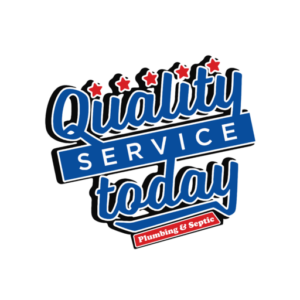Are Flushable Wipes Really Flushable?
There are certain products we rely on daily — those little comforts that make life more enjoyable, like your favorite mug or cozy slippers. Then there are others that seem helpful at first glance but quietly wreak havoc behind the scenes. Flushable wipes fall into that second category. They promise convenience and cleanliness, yet too often deliver plumbing headaches and environmental troubles. So, that begs the question: are flushable wipes really flushable?
Let’s dig into how flushable wipes behave in home plumbing, septic systems, and municipal sewage lines.
What “Flushable” Actually Means
When a package says flushable wipes, it suggests they can be safely sent down the toilet like toilet paper. The idea is they break apart or dissolve in water. In reality, most wipes on the market are made from synthetic fibers that resist water, which means they don’t break down easily. Toilet paper is made from short cellulose fibers that dissolve within seconds. Flushable wipes often arrive intact at the end of your home’s plumbing and into the wider sewage network. In short, flushable doesn’t always mean harmless.
Why You Can’t Flush “Flushable” Wipes
Before you flush another wipe, it’s worth understanding the problems they can create. So, why can’t you flush “flusable” wipes? Here’s what you need to know.
Pipes and Plumbing: A Recipe for Trouble
Your home’s plumbing isn’t a straight path. There are curves, joints, narrow sections, and changes in elevation. Flushable wipes, which remain solid, can easily become stuck in these spots. While they may make it past your toilet bowl, the odds of them causing issues further downstream are high. That’s why you can’t flush “flushable” wipes without risking a clogged pipe.
Septic Systems Can’t Handle Them
If your home uses a septic tank, flushing wipes can seriously disrupt the system. Septic systems rely on good bacteria to decompose waste. Wipes slow that process, sometimes stopping it altogether, leading to full tanks or backups. In that case, you’ll likely need septic plumbing services to clean or repair the system sooner than expected.
Sewage Infrastructure Isn’t Built for Wipes
Municipal sewage systems and wastewater treatment plants are designed to handle organic waste and toilet paper. Wipes stay intact and can clog pumps, screens, and filters. They can even contribute to the formation of fatbergs — hard, stubborn masses of wipes, grease, and other debris that cause blockages and costly repairs throughout the sewerage network.
Risks of Flushing “Flushable” Wipes
These risks go beyond a simple clog or slow drain. The dangers of flushing “flushable” wipes include household plumbing backups, damaged septic systems, and burdened treatment plants. Once these wipes reach the sewer, they break up into microplastics that contaminate water, posing risks to aquatic life and potentially human health.
Safer Alternatives for Cleanliness
If the goal is cleanliness and comfort without the plumbing hassle, there are better options than flushable wipes. Many families are now turning to solutions that are not only safer for their homes but also kinder to the environment.
Toilet Paper Combined With Water
This method has stood the test of time. Use toilet paper to dry and water (a wet cloth or bidet spray) to cleanse. It’s effective, gentle, and kind to your plumbing.
Installing a Bidet or Bidet Attachment
Bidets or bidet attachments are becoming common in American homes. A gentle spray provides a deeper clean using water and a small amount of toilet paper to dry. It’s hygienic, economical, and plumbing-friendly.
How to Handle Wipes if You Still Use Them
Not everyone is ready to give up wipes entirely. If that’s the case in your home, the best option is to throw used wipes in the trash instead of flushing them. Keep a small, covered trash can next to the toilet, and line it with a plastic bag for easy disposal. This prevents damage to your pipes, protects your septic system, and helps reduce problems in your local sewage treatment plant.
Make sure everyone in your household understands this practice. It’s especially helpful to post a small sign in guest bathrooms or children’s bathrooms as a reminder that wipes go in the trash, not the toilet.
A Final Reminder: Ditch the Misleading Label
So, let’s be clear: why you can’t flush “flushable” wipes comes down to mislabeling and misunderstanding. Manufacturers want consumers to feel safe flushing them, but the reality is different. If you care about home maintenance, city infrastructure, and clean water, it makes sense to rethink this habit.
What to Do If You Already Flushed Wipes
If you’ve been using flushable wipes and your drains are starting to slow down or smell, you might be dealing with a partial clog. It’s important to act before things get worse. In some cases, you can catch the problem early with professional cleaning. If the issue involves a septic tank, more in-depth service may be needed.
Quality Service Today offers trusted emergency plumbing services. Our plumbers in Mebane, NC, have seen the effects of wipes on plumbing systems more times than they can count. If you’re experiencing slow drains, overflowing toilets, or frequent backups, it’s time to give us a call. We’ll help you figure out what’s going on and offer solutions that actually work.
Ready for a Smoother Plumbing Experience?
Taking care of your plumbing doesn’t need to be complicated, but it does require good information and a team you can trust. If you’ve flushed wipes in the past and are worried about the impact, or if you’re just looking to prevent problems before they start, Quality Service Today is here to assist.
We proudly serve Mebane, Durham, and nearby communities with reliable drain, sewer, and septic plumbing services. Contact us today to schedule your appointment!

